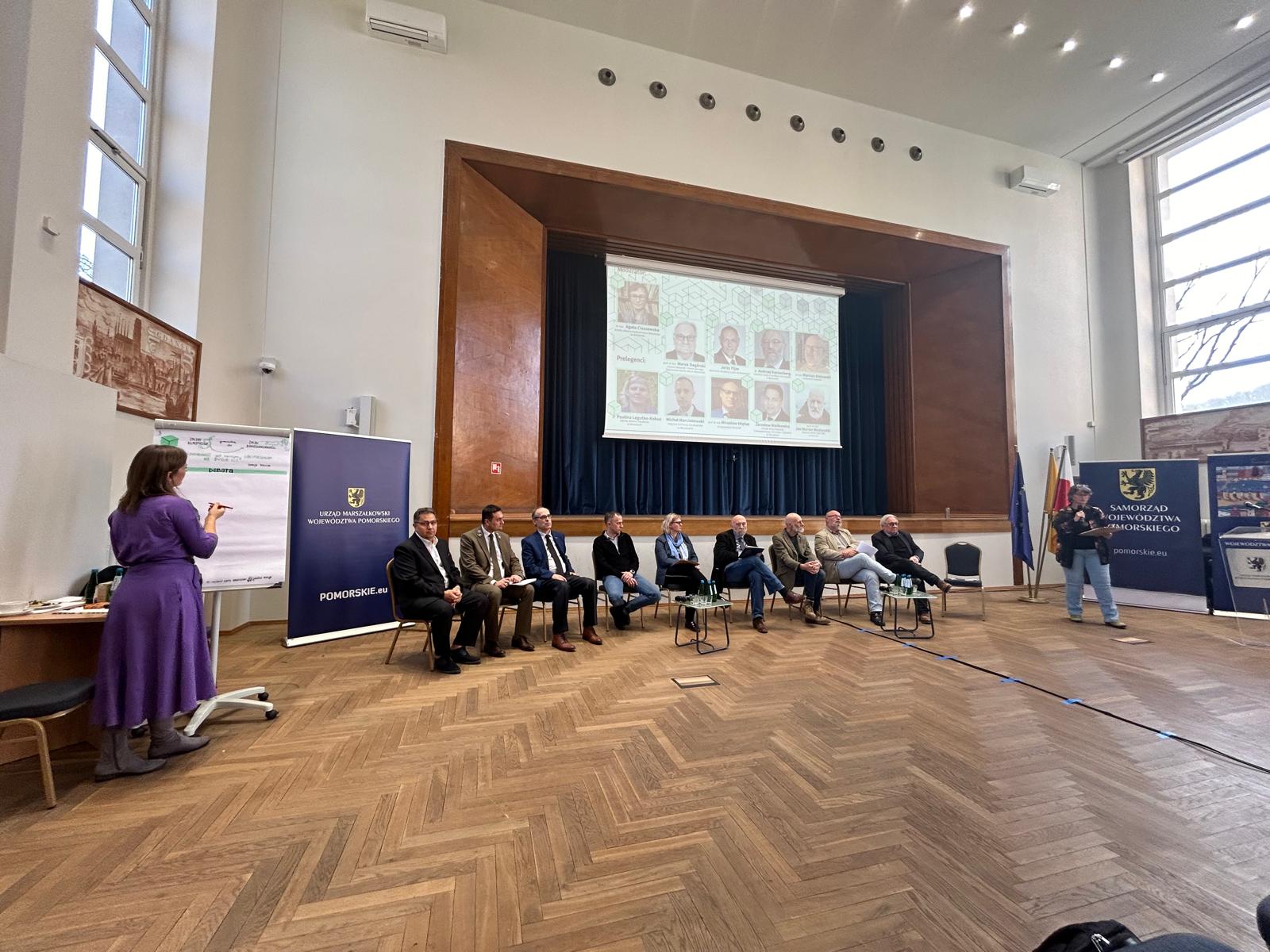The 2050 vision through the eyes of young people
What will the Pomeranian Region look like in 2050? What role will it play in the structure of the world, Europe and Poland in the 2050 perspective? What are the main challenges for the spatial development of the region?
These and other questions will be answered by students from Tri-City schools and universities during workshops held by the Pomeranian Regional Planning Office and the Fahrenheit Universities in Gdańsk.
On 11 October 2024, the first interdisciplinary planning workshop for students on the concept of spatial development in the Pomeranian Region was held in the “Polish Sky” Auditorium. The meeting was attended by students with tutors from the Fahrenheit Universities (the Medical University of Gdańsk, Gdańsk University of Technology and the University of Gdańsk) as well as from non-member universities: the Academy of Fine Arts in Gdańsk and Maritime University in Gdynia, and by the students of the University High School and the Technical School of Electrical Engineering in Wejherowo.
The meeting aimed at introducing the workshop topics and making the students familiar with basic information about the region’s local government, the regional planning system, including the Regional Spatial Development Plan, and the main challenges facing the Pomeranian Region in the 2050 perspective. Project teams were also created which will, between October and January next year, jointly reflect on the conditions and directions of spatial development of our region in the 2050 perspective. A total of six workshops will be held and their final outcome will be the presentation of a vision of Pomerania’s spatial development in 2050: The focus on actions in space and the protection of its resources and values in the 2050 perspective, which will be presented by the students in January at a joint meeting in the Round Room of the Office of the Governor of the Pomeranian Region.
The planned series of workshops is connected with the amendment procedure for the Spatial Development Plan of the Pomeranian Region, which started in March 2024. By commencing the work on the amendment to the Plan, the Local Government of the Pomeranian Region initiated a wide-ranging discussion on the identification of change factors and development trends, potentials and barriers, development issues and challenges in relation to the space of the Pomeranian Region in the 2050 perspective, which need to be properly included in the regional spatial policy. One of its components is a series of open debates on challenges arising from geopolitical conditions, on demographic forecasts and challenges, on settlement processes, climate challenges as well as on biodiversity protection, energy security and climate neutrality, variability and unpredictability of economic processes, and on changing transport needs and mobility challenges. Participants at each event will include the representatives of academic centres and research institutions from across the country, and the audience will include, among others, the students of Pomeranian schools and universities.
Press material from the Pomeranian Regional Planning Office, photo: Governor's Office of the Pomeranian Region


